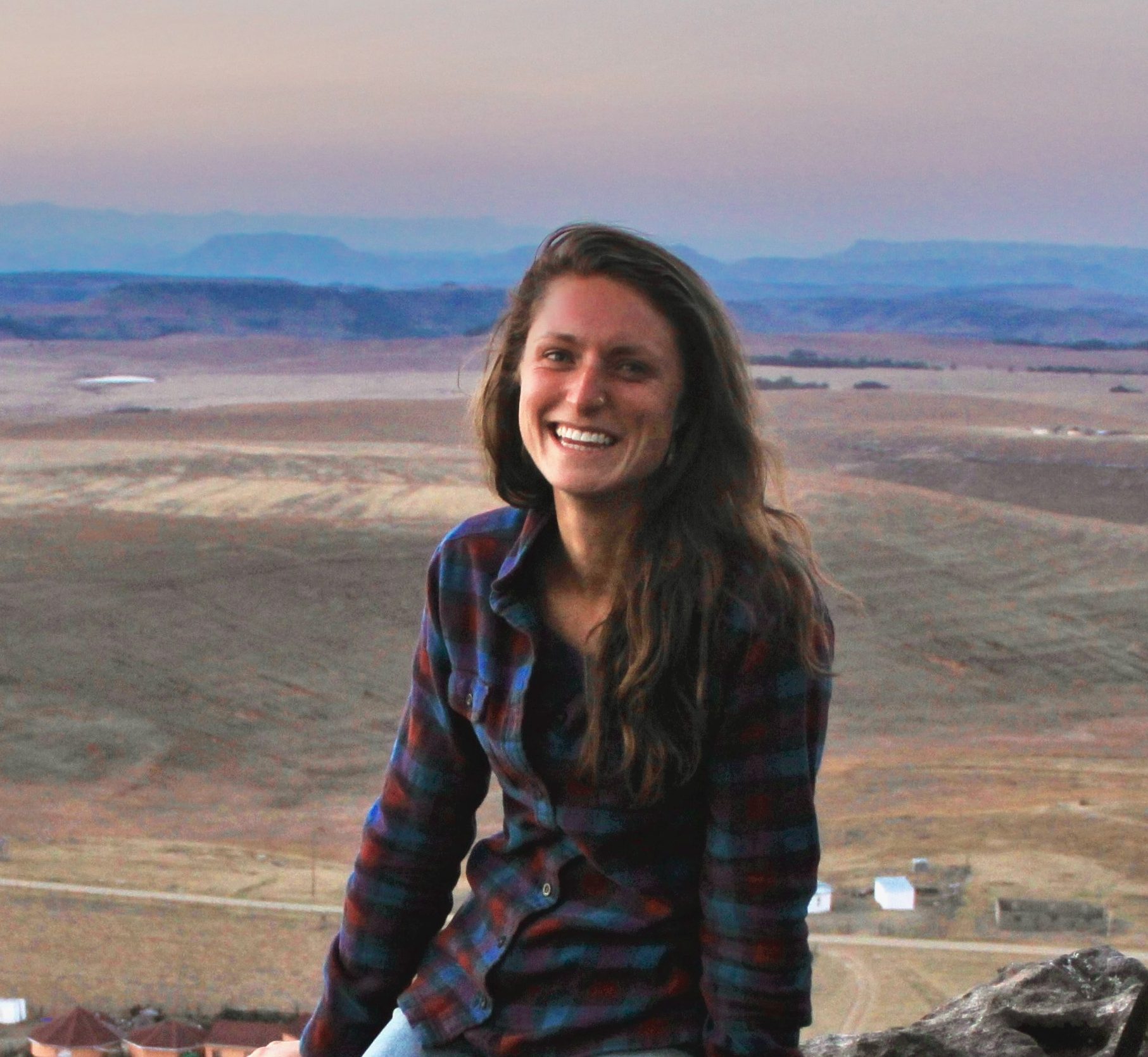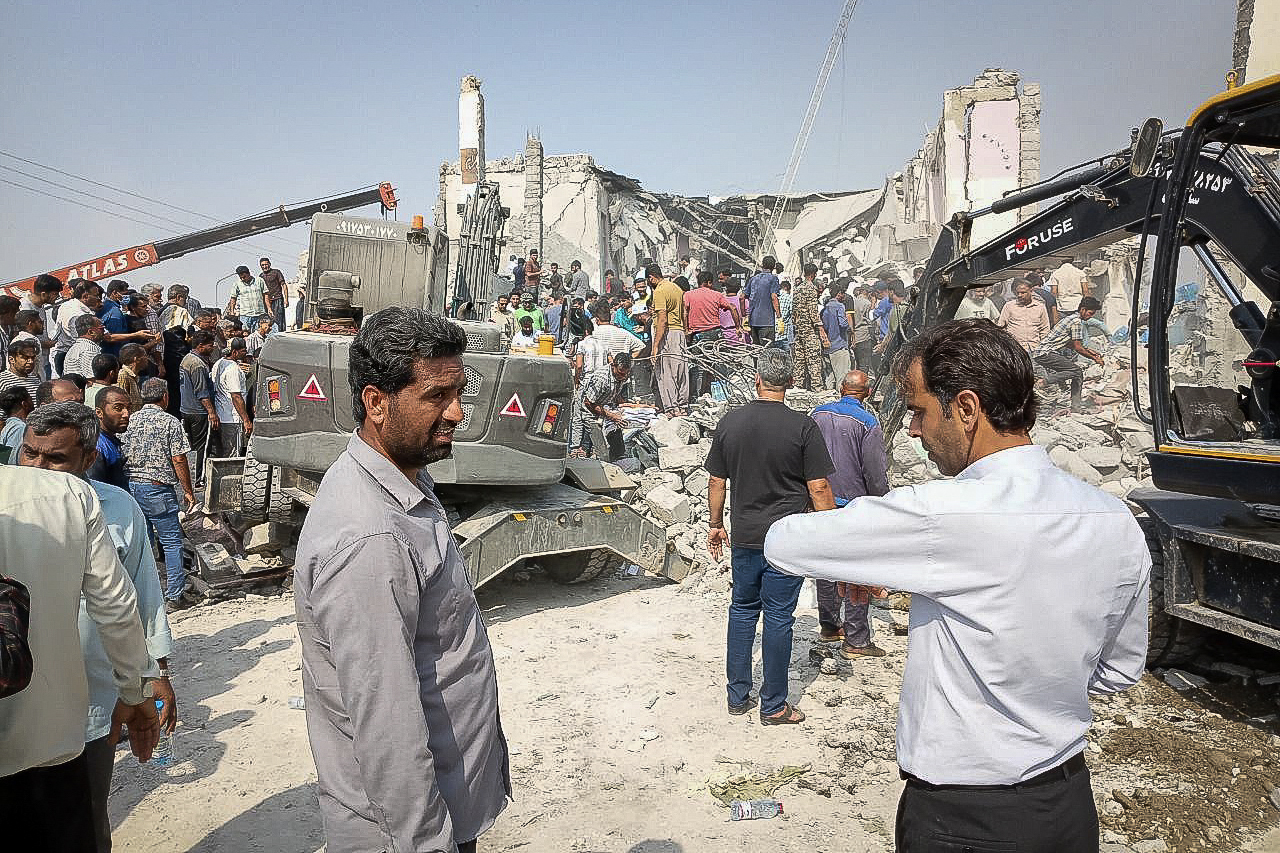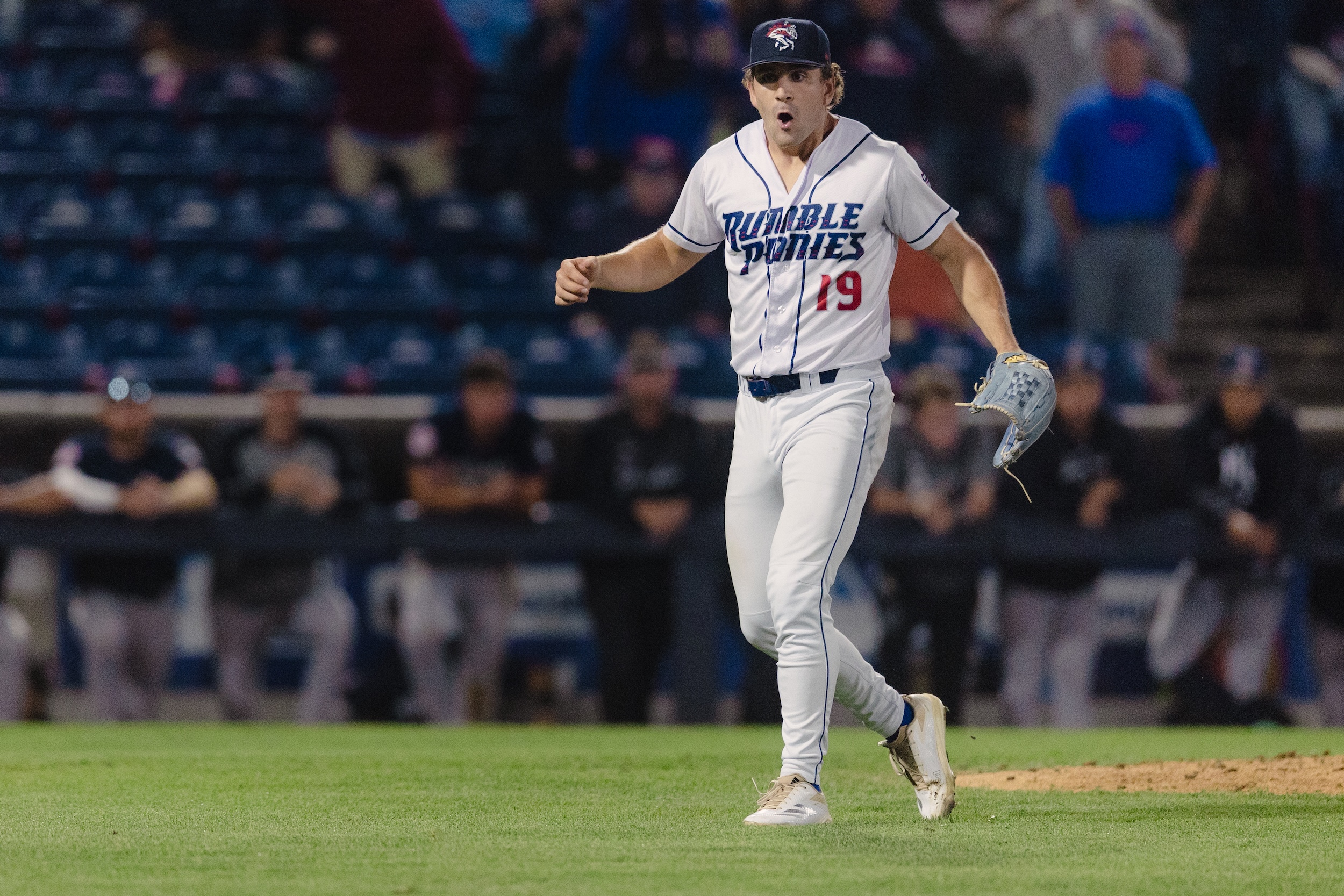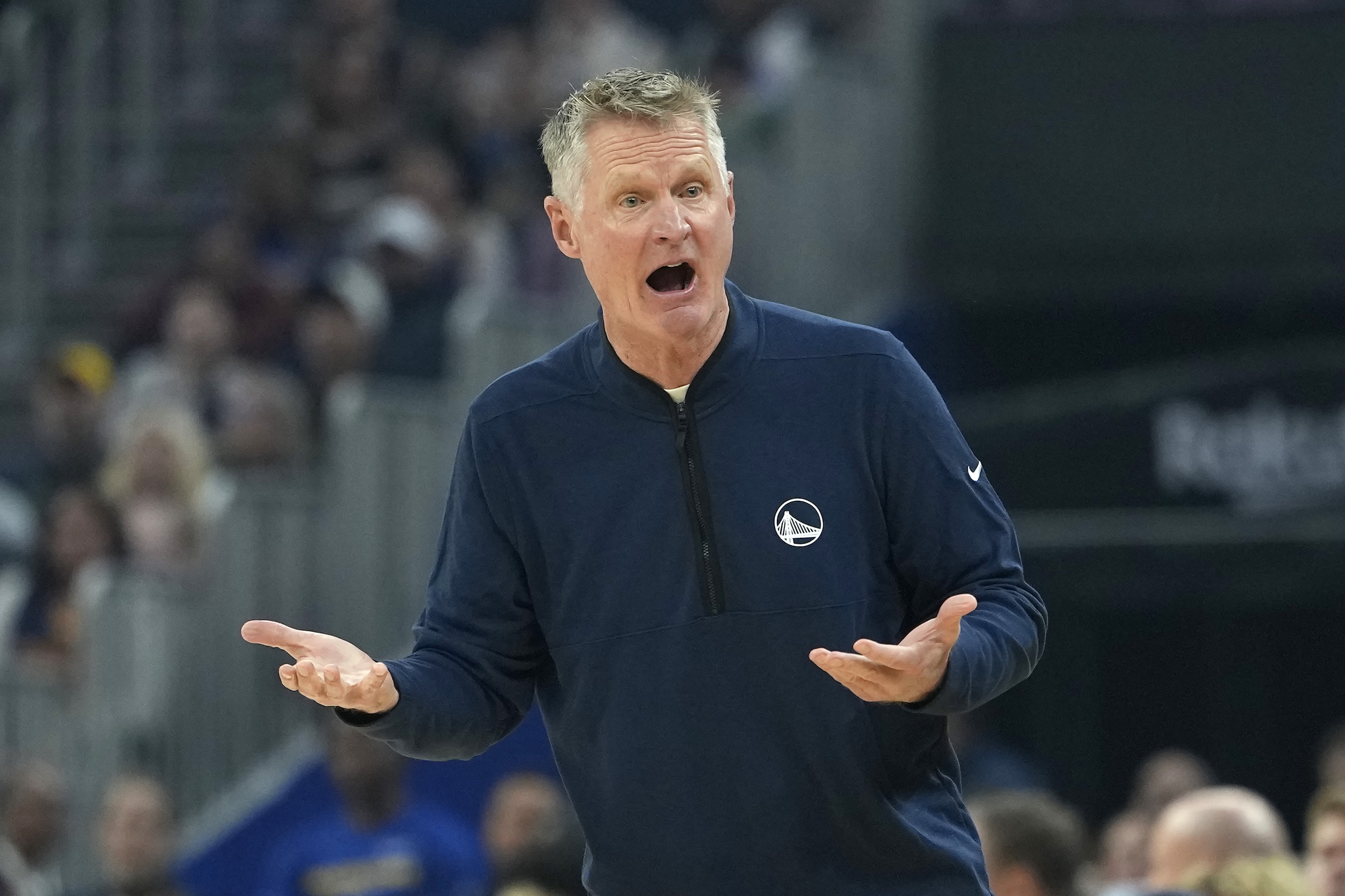Jules Reynolds grew up on a corn and soy farm in Iowa. Growing up, she imagined all agriculture looked like this—a monoculture of rows and rows of corn in one year, followed by rows and rows of soy the next. "To me, that was really beautiful," Reynolds said. "That was my backyard. That's what I played in."
When Reynolds went to college at the University of Iowa, she took classes that taught her about how monocultural farming systems impacted the environment. When you grow too many of the same plant species in one area, the crops drain the soil of its nutrients, demand more pesticide use, and diminish the biodiversity in the area. "I remember feeling this really deep tension within me," Reynolds said: how the food system that she grew up thinking was not just beautiful, but also feeding the world, was also harming the soil.
This tension guided Reynolds on her path to working toward healthier soil and more sustainable food systems and farming practices. She is quick to say, however, that she doesn't want to demonize any farmers who engage in monoculture farming. "I grew up with these farmers who are really just trying to support their families and support their communities and support a food system that they believe in," she said. But she believes there is an "opportunity to build stronger food systems and build agricultural systems that follow soil health practices that can be more ecologically sustainable."
In August, she was hired by the U.S. Department of Agriculture's Agricultural Research Service to support the Soil Health Alliance for Research and Engagement, or SHARE, as a program coordinator. SHARE is a collaboration between the USDA, the University of Wisconsin-Madison, and a nonprofit called the Michael Fields Agricultural Institute. SHARE aims to improve soil health across Wisconsin and the Upper Midwest. Reynolds received her termination letter on Valentine's Day, when she and some of her colleagues were fired under the mass layoffs directed by Elon Musk's Department of Government Efficiency, or DOGE.
Reynolds was recently reinstated, but the administration has signaled its clear intent to continue reductions in force across the federal workplace. "I'm very much looking forward to being back with my team, and I also am highly aware that I'm returning to an unstable landscape," Reynolds said. I spoke with her about her farming roots, building stronger networks, and Wisconsin's founding history of collaboration with the government.
This interview has been edited and condensed for clarity.
Can you tell me about your path toward federal service and how you became interested in science and soil?
My research through the PhD was focusing on food systems and agricultural systems in Wisconsin, specifically in southern Wisconsin. I was looking at— coming out of the pandemic especially—how can we strengthen our local food systems and make them more resilient and more responsive to these sorts of disruptions, and better support our farmers and our communities. I was wrapping up that PhD program, and then some folks who I was working with through the PhD program, including my advisor, became aware of this position with the USDA. It was a program coordinator position for a initiative called the Soil Health Alliance for Research and Engagement, or SHARE. That seemed like a really lovely opportunity to keep moving forward with this work that I've been engaged in in my PhD.
I grew up on a farm in Iowa, and my grandparents were farmers. I think it just has been in my awareness for my entire life, the importance of farming and agriculture and food systems. That's what I've built my career around, even prior to grad school. I was a community food organizer, both abroad and in the state of Oregon, before coming to grad school. I came to Wisconsin to pursue a master's in agroecology because I wanted to better understand the tools and the language and the issues that farmers face.
So it felt like such a privilege to get to come out of my PhD and immediately tap into a job that was in service of our farming communities in Wisconsin, and research, too, that supports these farmers and agricultural systems. I grew up knowing that I am who I am because I grew up on a farm in Iowa.
Could you talk a little bit about this partnership that is SHARE and what it aims to do?
As a collaborative initiative, we have this really unique opportunity to work towards soil health from all of these different angles and collaborate, share research, share data sets, and advance solutions to soil health in really creative and hopefully far-reaching ways. It's sort of a novel program. It doesn't really exist anywhere else like it does in in Wisconsin, across the Upper Midwest in SHARE.
We have researchers looking at soil carbon sequestration and how we can use soil health practices like cover crops—planting cover crops to sequester carbon, which is a huge opportunity for climate change mitigation. We also have researchers looking at how can we capture interactions between different kinds of farm management practices—what we're growing on the pasture, how we manage manure on a farm, and how those farm management practices affect whole farm economic and environmental outcomes. We're using soil health as a lens to really look at the health of the entire farm and the health of the entire ecosystem. Supporting soil health also means supporting farmers and agricultural communities throughout Wisconsin. And then we have researchers who are looking at things like farmer wellbeing through more of a social science lens. So really quite a broad array of disciplines and research questions that are all coming together for hopefully very wide-scale impacts.
What is soil health and why is it important?
Soil health, really broadly, I think, speaks to maintaining the integrity of our soils. This is the biophysical, the chemical, the nutrient integrity of our soils, such that our soils can support vibrant and healthy and sustainable agricultural systems and ecological systems, and then from there support farming communities and our farm economies and our food systems. I think anyone who's worked in the realm of farming or agriculture knows that in order to have a healthy farm, you need to have healthy soils. The soils are the basis and the foundation for productive crops and ecosystem services like pollination. If we don't have healthy soils, and we don't have a diverse kind of plants that can grow, that can support pollinators, that can then support our pollinator crops.
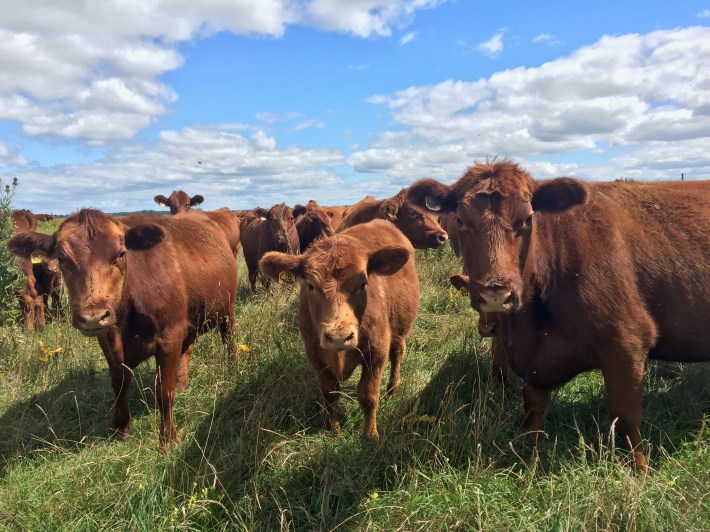
I would love to hear about what an average day looked like for you as the program coordinator of SHARE.
Generally speaking, my role was at a high-level position to understand how the many different moving parts of SHARE—all of the different research projects and outreach projects and events and conversations that were happening—were working together and to understand the whole picture [of] SHARE as building this really robust web of knowledge for finding these solutions to soil health challenges. My role was to take this high-level view and connect the researchers and the outreach coordinators and the practitioners together so that they could come together for more collaborative approaches. Maybe to share resources and build the effectiveness of the work that we were doing. What that looked like on a day-to-day level was meeting with different researchers and partners through SHARE to understand the work that they were doing.
I was the administrative supporter of SHARE as well, so working with our partners to draw up budget agreements and increase the transparency around, how do you work with a federal agency like the ARS? Because we're taking federal funding through these budget agreements, moving it to our partners. So that was, that was a really important part of my job as well. And then part of this work was to evaluate the work that we're doing in terms of, are we achieving the goals that we set out to achieve?
I was in the process of building evaluation frameworks and methodologies for our team to move through so we could evaluate, is the research that's being conducted meeting the goals that we set out? And where are the gaps in this research for this work? And how can we better serve the communities that you know we are intending to support?
Could you tell me about your experience of getting fired?
I've been asked before if I was surprised, and I think that there's a difference between everything happening really fast and being taken by surprise. Because my experience had been that, ever since day one of the Trump administration, there had been all of these executive orders coming out of the White House that, from my perspective, seemed to imply—and not even just imply, like directly stated—that there was going to be massive changes in the federal workforce.
We were told by our leadership within the USDA that this is a really safe ship to be on. That's the language we were given. The waters seem really turbulent right now, but the USDA is a safe ship. I don't think that we were being lied to at all. I think that is truly what our leadership believed, because I think that's the language that they were given and the understanding that they were given from their leadership. I think that that makes sense in a way, because the USDA really does seem to be in service of goals that are much bigger than partisan politics.
It went from Thursday morning, like, oh, there's rumblings that things are happening, to Thursday afternoon, I received an Outlook invitation for an emergency all hands on deck meeting. And that's kind of when [I felt] like, oh, this is going to be bad for me. I went to bed on that Thursday night assuming that I was going to lose my job. I checked my email at like 6 a.m. the next morning, and I had received the letter of termination.
Were there other members of your team, or the SHARE Program, more broadly, that were let go?
So the Agricultural Research Service, ARS, has a station in Madison that's a relatively small station. That day about 25 percent of our staff was terminated. I think that was—I don't actually have exact numbers—but somewhere around 14 to 16 people. I mean, that's a large portion of the staff that was immediately [terminated], including researchers and administrative staff who were directly working with SHARE. Since then, we have had our researchers reinstated, which was extremely hopeful and positive news.
That happened about a month ago, and at that time, there was still this really broad awareness that in order to have that research continue, you need a fully functioning center. You need technicians who are working in the lab, supporting those researchers. You need administrative staff who are doing all the behind-the-scenes work to make that research happen.
Could [you] talk about the the emotional experience of that time?
There was a lot of anxiety and insecurity and instability on many different levels. Clearly one of the most immediate levels is, how am I going to pay my bills, right? I don't have an income anymore. I am in a single-income household.
That was compounded by, oh my gosh, there's so many other people who are in this boat now. This landscape is hard, and it continues to be hard. That was certainly something that was weighing very heavily on my mind, particularly because I had been in grad school for the last, six, seven years. As a graduate student, I certainly didn't have stable income. As a graduate student, you're constantly applying for the next grant or the next assistantship that can get you through the next year, the next semester. I think the irony of [this]—someday I'll look back on this and laugh—is that the federal workforce seems so stable, and such a boon. Because, oh my gosh, for the first time in my life pretty much, I'll have a secure income.
I remember going home from the office on that Friday and feeling this overwhelming sense of disconnection. Because I just turned in my keys and my laptop, and I didn't know how I would I felt like I was going to go home and sit alone and just be completely disconnected from my community. I think that the best thing that I can think of that has come out of this last month is that actually, I think those connections have gotten even stronger. I'm talking about my connections with my colleagues. I've had really wonderful personal conversations on the phone or in-person with people I worked with at SHARE who have just been incredibly supportive and wanting me to know that they support me in this time of transition. Then with other terminated federal employees—you know, people who I've actually never met before, but I met through this experience—there's been a really lovely network of solidarity that has come out of this. I think that's so important in this moment now, where it feels like everything is so divisive. It seems like there's this intentional maneuvering to fracture us. So knowing that through this experience, actually, I felt more connected and have been able to strengthen my community even further, that's been really, really hopeful.
I'm curious how you connected with those folks.
People started, I think, seeing some of those stories online in some of the local news outlets that I had shared with, and then reached out to me via LinkedIn or my email address. That's how we were able to get connected, and since then, have been seeing each other in person or talking on the phone. I've done the same thing. I've seen other people share their stories, who are based out of Madison or Wisconsin, and felt very strongly that I wanted to show my support for them in sharing out in their experience.
I did pick up some bartending shifts with this farm-to-table restaurant that I had worked with throughout my dissertation. That was also this huge showing of support, where the owner, who is my longtime friend, texted me right away and said, "Oh, I'm worried that you might have just lost your job? Are you OK? Do you need shifts?" So I felt so supported by my community and the weeks that followed.
[Do] you have a sense of how immediately this would ripple out to farmers or to the people of Wisconsin and in North Dakota, or to the soil itself?
We are already seeing farmers lose major grants from federal funding freezes. We are already seeing universities call back research initiatives and place hiring freezes on new researchers. We are already seeing nonprofits need to pivot because of federal funding freezes and narrow their focus, or their capacity.I think that I'm not sure what I can say in terms of SHARE but I am seeing immediate effects within our research and agricultural landscape in Wisconsin. These stories are already coming out, that farmers are losing money, that researchers are losing money, or universities are losing money. It's absolutely immediate. And it will be long-term in ways that I think we probably don't even understand yet.
I just wanted to ask if there was anything that we haven't had a chance to talk about with regard to your job, your firing, the future, that you want to touch on.
I think one of the most devastating impacts of what we're seeing right now, for me personally, is the intentional—"loss" is too passive a word—but the intentional undermining of our pool of early stage researchers right now. These are researchers like the probationary researchers who I worked with, who were new to the USDA, who have since been reinstated, thankfully. But these are also the postdocs and the graduate students at universities across the country who are losing opportunities to move forward in their fields and literally being told to go find jobs in the private sector or the corporate sector. Corporate sector research is very different research. It's in pursuit of different priorities. That's not necessarily to say that it's bad, but corporate sector research is in pursuit of market goals. And the value of federal research and university research is that it truly is in service of farmers and our agricultural systems and the health of our farm economies and our agricultural communities.
I think that we will see this huge loss in this pool of researchers, many of whom are women, many of whom are researchers from underrepresented groups, and many of whom are thinking in new and exciting and creative and interdisciplinary ways. That is the kind of thinking that we need to address these huge, huge problems that we're facing as a society. And we're losing those people. So when I say that we will have ripple effects, I think that is a huge, huge loss that will affect the landscape of research and our knowledge and the solutions that we have to these problems for years to come.
There has been this undermining and undervaluing of the university as an institution of research and service to our communities. And there's been an undervaluing of the federal workforce who are in service to communities across the state of Wisconsin and the country. To me, that feels deeply sad, specifically thinking about Wisconsin. As a state, we are built off of this federal and university and community partnership, like that is the foundation of our state. We were settled by miners and loggers, but we really came into our statehood as an agricultural state with support from the land grant, university, and federal funding. As a state, we have this really deep, rich history of these partnerships that have worked to make our state stronger.
I think that being able to kind of remind people, oh, actually, we have long worked with each other, federal employees and university employees and researchers and rural communities, we have long had been in collaboration together, and we've really been better for it. We need to be building these bridges, reminding ourselves that these bridges have long been there.
If you have lost your job as a result of ongoing government cuts and are interested in speaking with me for this series, please contact me on Signal at simbler.88 or simbler@defector.com. I would love to hear from you.
